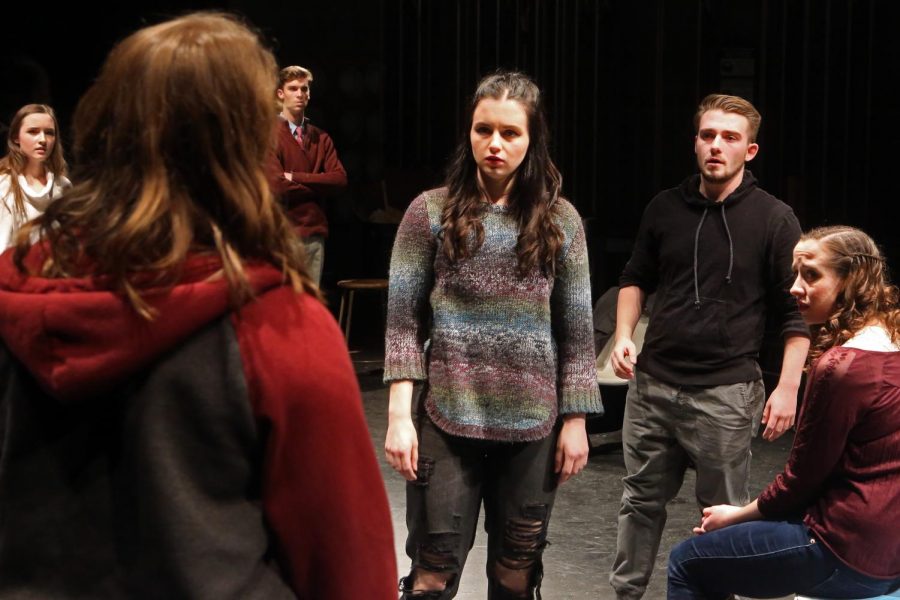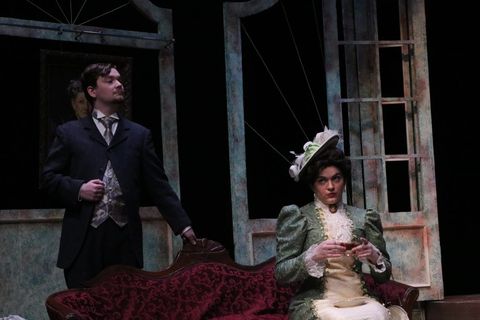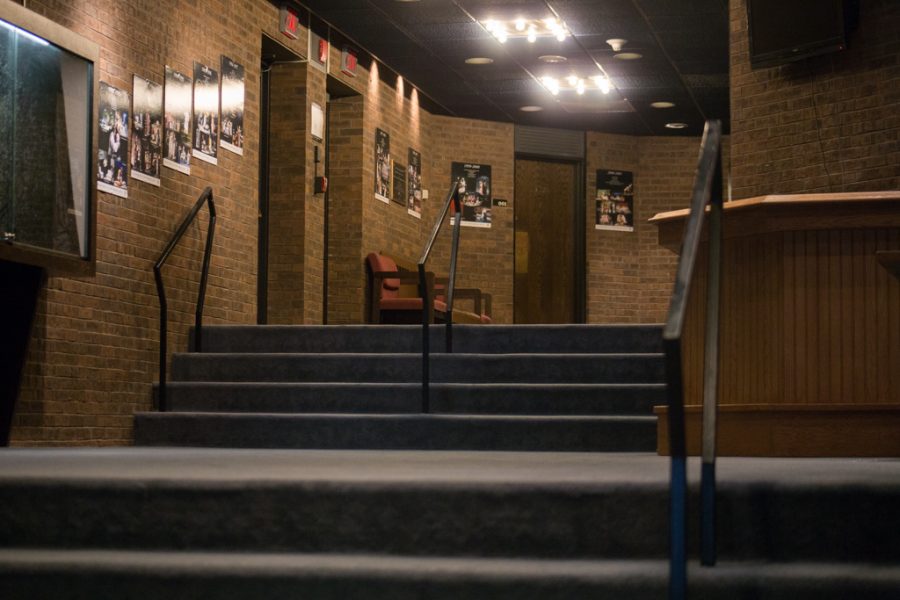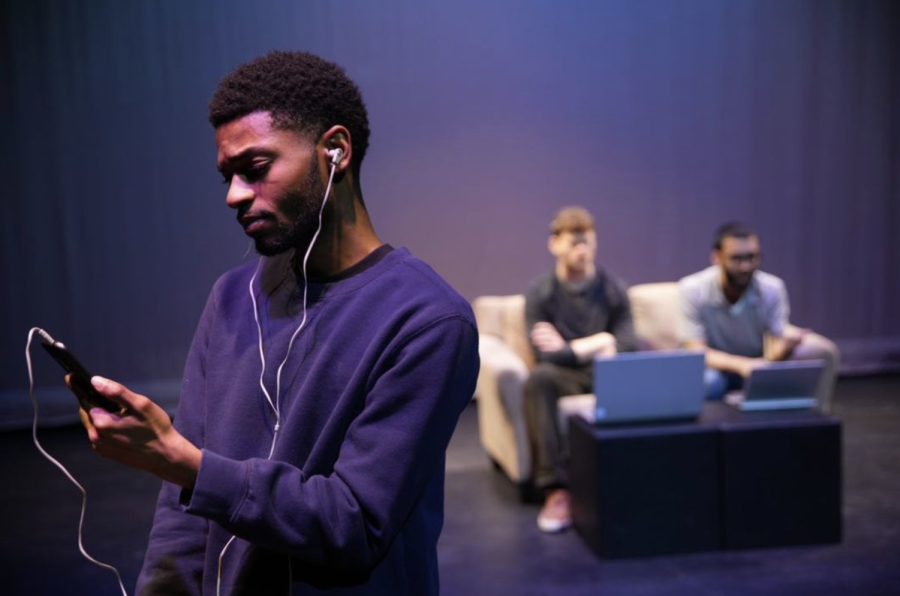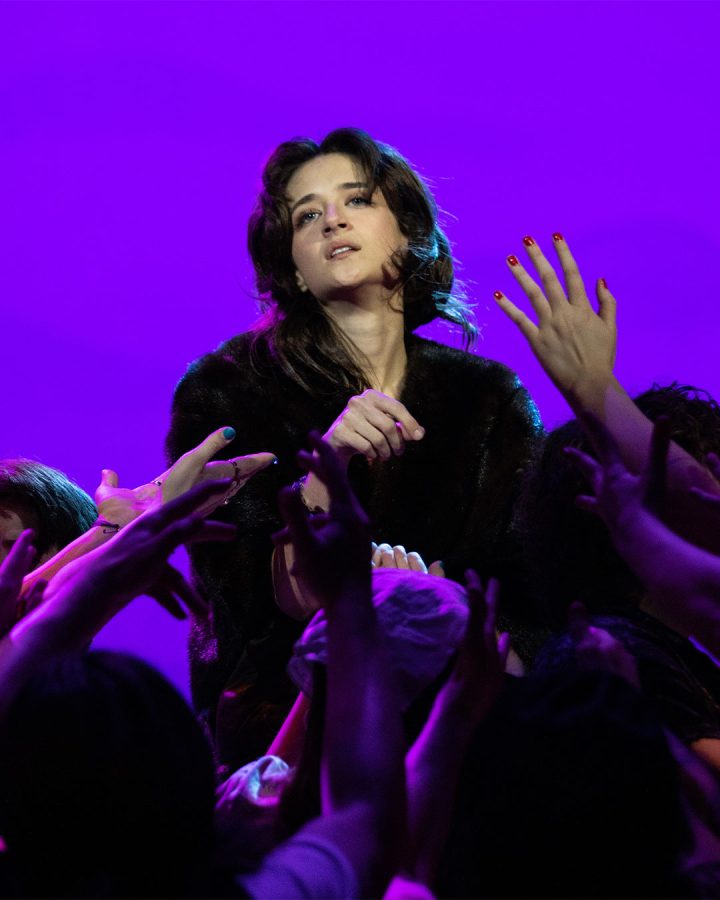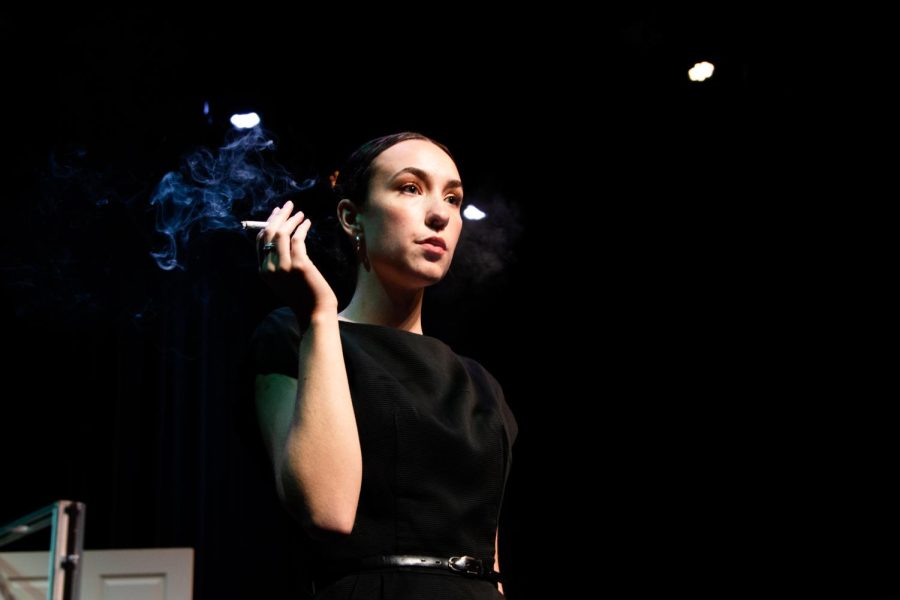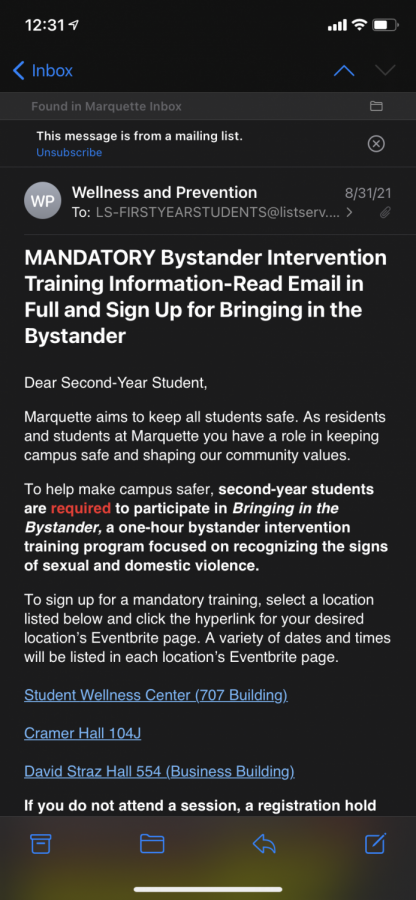A girl is holding a camera with a video of a sexual assault on an SD card.
She doesn’t know what to do, but eight of her classmates and the girl who works at the local Starbucks have some ideas.
That was the premise of Marquette Theatre’s most recent production, “Student Body.” Even though it’s a hard issue to swallow, the performance was executed at a professional level, and the topic was handled with grace.
Margaret Tomasiewicz, a junior in the College of Communication, played April, a girl-next-door type and one of the show’s most relatable characters. While April ultimately fails to take any action at the close of the play, Tomasiewicz humbly commanded the stage as a voice of reason for the bulk of the show. When April was faced with a conflict, Tomasiewicz simultaneously utilized emotion and body language to communicate with the audience, and it worked well.
Nick Cordonnier, a sophomore in the College of Communication and Marquette Wire staff member, played Rob. In contrast to April, Rob is one of the most unlikable characters in the play. In the end, even his best friend Pete, played by College of Communication senior A.J. Magoon, starts to look at him differently. The character filmed a rape and, in most instances, it would be easy to completely ostracize such a person and exaggerate the character. Yet, Cordonnier was able to give Rob a streak of humanity, which was undoubtedly a difficult task.
Rob was not the one who committed the assault. However, the attacker personifies an important point— a lot of times, sexual assault victims know their attackers. Bystanders need to make a choice, regardless of who’s involved.
While the audience never heard from the victim in question during “Student Body,” they did hear from a sexual assault survivor. Natalie, played by Agnes Connolly a sophomore in the College of Communication, drunkenly recounts her story while fumbling around the stage.
Connolly struck a perfect balance between the survivor and bystander. The intoxicated incoming law student provided comic relief during the beginning of the show. She still managed to flawlessly deliver a heart-shattering monologue, showing Natalie’s unsuspecting depth and Connolly’s range as an actress.
Unfortunately, that recount was not enough to change characters’ minds. Malcolm, played by College of Communication junior Nick Parrott, Lucy, played by College of Communication sophomore Caroline Norton, and Pete all came out a little differently in the end. It affected them and the actors were able to portray small character changes to depict that. Lucy left a little bit broken, while Pete and Malcolm left noticeably conflicted.
Annie Kefalas, a senior in the College of Communication, played Daisy, the local Starbucks barista. Daisy was a light of hope for the survivor, until the very end. Daisy was the outcast of the group as she only knew one person, which allowed Kefalas to take a much more direct approach to the character’s situation. She was aggressive when she needed to be and hurt or loving when appropriate. Ironically, her decision to walk away from everyone empty handed left one of the largest impacts; and, despite wishing the outcome had been different, Kefalas could not have done a better job portraying a severely conflicted and broken young adult.
The show was staged to be performed as a theater in the rounds, which has the audience sit on stage while the actors are performing. This created a much more intimate experience that would likely not have been achieved in a traditional seating arrangement.
This did lend itself to unavoidable issues, as it was impossible to have everyone facing the entire audience. For instance, Liz, played by Rene Leech, a junior in the College of Communication, and Maggie, played by Raven Ringe, a sophomore in the College of Communication, were often on the sides of the stage and a large portion of the audience could not see their faces. Visibility added much more to their respective characters through direct emotional expressions of fear and anger.
It was a small price to pay for the level of closeness.
This play represents a typical college population well: a devoted boyfriend, drunk students, smart students, theater students, jocks, outcasts and sibling squabbles. It had phenomenal actors and director Leda Hoffmann showed attention to detail, even leaving a box of Cheese-Itz on the stage. The plot was engaging, challenging and unfortunately, realistic.
The only thing this show missed was a satisfying resolution, but that’s what made the audience think. That’s what made it powerful and, hopefully, that’s what will contribute to making a difference in the minds of college students, should they be faced with a situation like the one depicted in the play.

